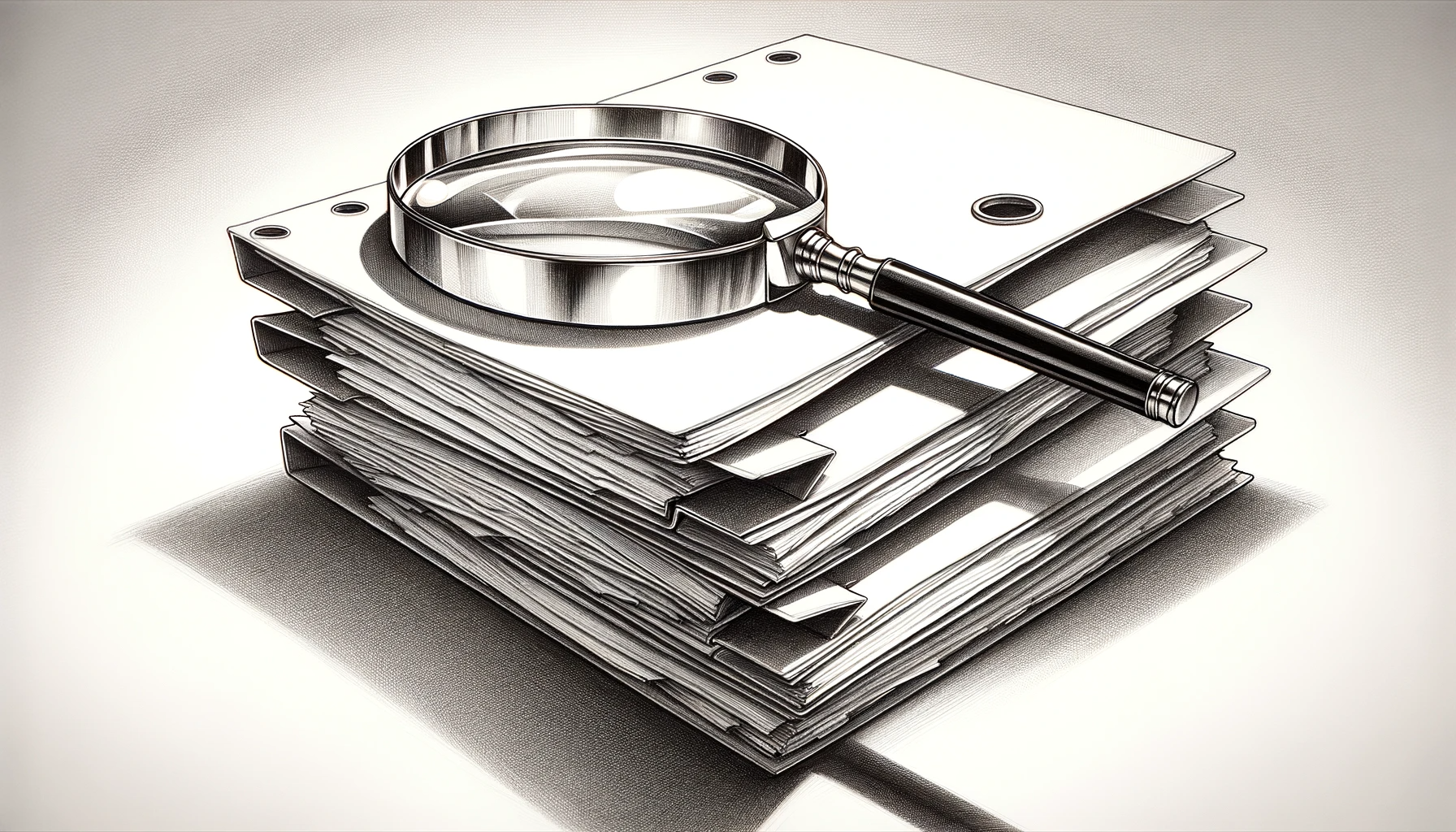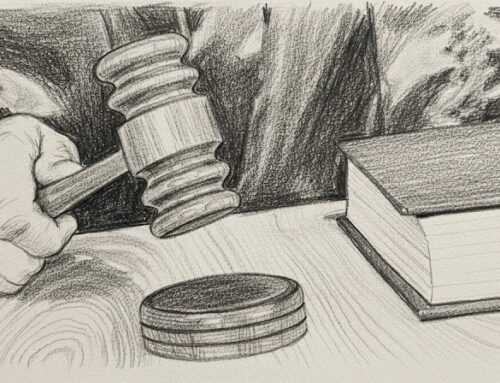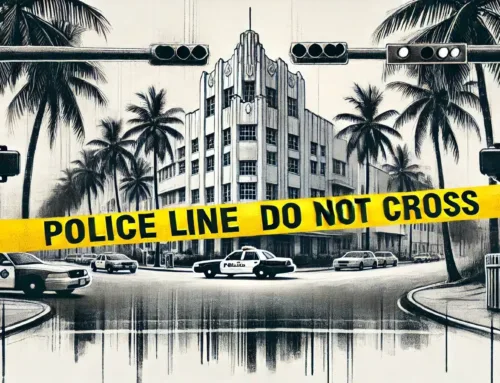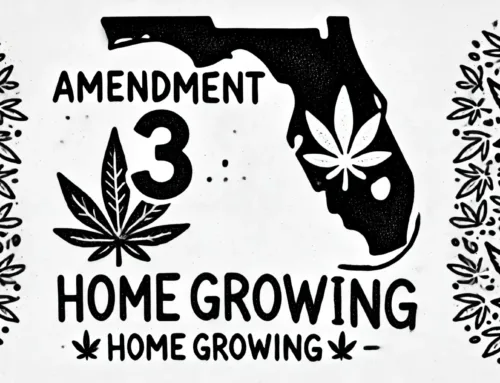Discovery in Florida Criminal Cases
If you’ve been arrested and charged with a crime in Florida, you probably have many questions about what happens next. One important part of the criminal justice process is something called “discovery.” Keep reading to discover what discovery is, why it matters, and how an experienced Miami criminal defense lawyer can help ensure you get the evidence you’re entitled to.
What is Discovery?
Discovery is a pre-trial process where both the prosecution and the defense exchange information about their respective cases. This information can include:
- Police reports about the alleged crime
- Witness statements
- Records related to the investigation
- Photographic, video, or audio evidence
- Results of scientific tests or examinations
- Expert witness opinions and credentials
- Contact information for potential witnesses
- The defendant’s own statements to police
The purpose of discovery is to ensure that both sides have a fair opportunity to prepare for trial. It allows the defense to identify weaknesses in the prosecution’s case and develop their own defense strategy. Without access to the evidence that will be presented against you, it’s almost impossible to construct an effective legal strategy and challenge the charges.
Types of Discovery in Florida Criminal Cases
There are several different types of discovery in Florida criminal cases, including:
- Formal Discovery: This involves written requests for information, such as interrogatories and requests for the production of documents.
- Depositions: This is where witnesses are sworn in and questioned by both the prosecution and the defense.
- Motions to Inspect: This allows the defense to request to inspect specific items of evidence.
- Brady Material: This is any information that the prosecution has that is favorable to the defense.
What Information is Required to be Disclosed?
Under Florida law, the prosecution must disclose certain information to the defense if the defense demands discovery. This information includes:
- The charging document outlining the formal accusation against you
- Written or recorded statements from the defendant and codefendant(s)
- Names and contact information of both prosecution and defense witnesses
- Police reports generated during the investigation
- Witness statements, including eyewitness identification information
- Crime scene documentation, including photographs, measurements, sketches, etc.
- Documents about the prior criminal record of the defendant or any key witnesses
- Tangible evidence seized during searches or arrests (weapons, computers, records, DNA samples, stolen goods, etc.)
- Results from forensic exams or scientific tests performed by law enforcement
- Search warrant documentation if any property was seized
- Records related to any informants or undercover operations
- Transcripts or recordings of 911 calls, radio communications, and jail calls
- Additional evidence individualized to certain crimes (e.g., breathalyzer tests in DUIs)
- Any Brady material
The defense must also disclose certain information to the prosecution, but only if they have requested it. This information includes:
- The names and addresses of any witnesses the defense intends to call at trial
- Any written or recorded statements of witnesses that the defense intends to use at trial
- Any expert reports that the defense intends to use at trial
What’s the Process of Discovery in Criminal Cases?
Exchanging discovery in a criminal case typically involves certain steps and deadlines:
The prosecutor provides initial discovery to the defense – The defendant typically initiates the discovery process by filing a “Notice of Discovery.” After the charges are filed, the prosecution has 15 days to disclose the majority of discoverable materials like police reports, witness statements, scientific test results, photographs, defendant statements, criminal histories, and certain tangible evidence.
Additional discovery can later be requested – Defense counsel reviews the initial batch of discovery and determines what other pertinent information may still be needed (e.g., missing reports, witness statements, etc.). Your lawyer then makes a supplemental demand for that material.
Extra time if discovery is especially voluminous – For cases involving an extreme volume of evidence (like complex fraud or capital cases), Florida law allows extra time for the prosecution to furnish discovery and the defense to inspect it.
Reciprocal discovery provided to the state – Just as you can request evidence from the prosecution, they can make similar demands about certain non-privileged items you possess. This reciprocal discovery usually encompasses things like medical/expert reports, physical evidence analyses, alibi witness information, and scientific test results the defense intends to introduce at trial.
Ongoing duty to disclose newly acquired evidence – Both sides are responsible for turning over additional discovery acquired after the initial batch. New developments sometimes arise even shortly before (or during) trial, necessitating quick disclosure.
Following proper discovery procedures minimizes “trial by ambush” and enables both sides to be fully prepared. It’s a bedrock component of due process.
What Happens if the Prosecution Fails to Disclose Information?
If the prosecution fails to disclose information that is required by law, the defense may be entitled to:
- A continuance of the trial
- The exclusion of evidence that was not disclosed
- Sanctions against the prosecution
What are the Deadlines for Discovery?
There are specific deadlines for discovery in Florida criminal cases. These deadlines can vary depending on the complexity of the case. It is important to consult with an experienced criminal defense attorney to ensure that all deadlines are met.
What are the Benefits of Participating in Discovery?
There are many benefits to participating in the discovery process, including:
It allows you to make informed decisions – With full knowledge of the prosecutor’s evidence and case theory, you can realistically weigh your options and decide how to plead or whether to accept/reject a plea bargain.
It helps properly prepare your defense – Discovery gives your defense attorney sufficient time to scrutinize the evidence, conduct an independent investigation, locate exculpatory evidence, find expert witnesses, file appropriate pretrial motions, and formulate defense strategies.
It prevents unfair surprise at trial – Defendants have a due process right to receive the prosecution’s evidence well before trial. Surprising evidence that you’re unprepared to rebut can improperly influence the verdict.
It exposes flaws in the state’s case – Many criminal cases hinge on relatively limited evidence. Carefully inspecting each piece allows skilled defense lawyers to find inconsistencies, procedural defects, credibility issues with witnesses, evidentiary rule violations, and other weaknesses to exploit at trial.
It protects against wrongful convictions – The alarming frequency of wrongful convictions proves why robust discovery is so indispensable. Access to critical evidence allows errors, lies, biases, misidentifications, false confessions, and misconduct to be uncovered before they cause injustice.
Is Discovery in a Criminal Case Public Record?
This is a complex question with no simple answer. The public accessibility of discovery materials in a criminal case depends on various factors, including the specific information requested and the stage of the legal proceedings.
Generally, discovery materials become public records once they are filed with the court. However, certain types of information may be protected from public disclosure, such as witness statements containing sensitive personal information or confidential investigative materials. Additionally, judges may order that specific documents remain sealed to protect the privacy of involved individuals or ensure a fair trial.
In Florida, the Florida Public Records Act governs the release of public records. Under this law, any document filed with the court is presumed to be a public record and accessible upon request. However, exceptions exist, such as:
- Confidential information is specifically exempted from disclosure by statute.
- Documents containing trade secrets or commercially valuable information.
- Pre-trial discovery materials not yet admitted into evidence.
Whether specific discovery materials are public records depends on a case-by-case analysis and the court’s discretion. If you have questions about the public accessibility of specific discovery materials in your case, it’s crucial to consult with an experienced criminal defense attorney.
How Can a Criminal Defense Attorney Help?
Navigating discovery can be highly complex, especially when massive amounts of multimedia evidence are produced. Hiring an experienced criminal defense lawyer is the smartest way to protect your rights and capitalize on discovery. Here’s how quality legal representation helps:
We aggressively pursue all discoverable materials – Law enforcement won’t always voluntarily comply with disclosure obligations. We send thorough discovery demands, confer with prosecutors, petition the court to compel evidence when needed, and take all appropriate steps so you get everything you’re owed.
We identify gaps revealing additional evidence to seek – Based on our handling of numerous similar cases, we can look at initial discovery and quickly spot conspicuous omissions suggesting more materials exist. We then tenaciously track down that supplemental evidence.
We devote resources to meticulously inspecting discovery – Discovery review and analysis is extremely labor-intensive yet crucial. Rather than you having to do this solo, our attorneys dedicate the ample time and attention needed to study all produced items down to the finest details.
We leverage discovery to dismantle the prosecution’s case – Every case has weaknesses, no matter how air-tight it first appears. Analyzing discovery through the lens of an experienced Florida criminal defense lawyer reveals the soft spots we can exploit to attack illegal searches, question eyewitnesses, exclude evidence, undermine snitches, destroy an expert’s opinion, poke holes in false confessions, and reveal lies.
We consult appropriate experts to scrutinize evidence – Some evidence requires specialized expertise to carefully assess, like DNA, ballistics, fingerprints, digital forensics, accident reconstruction, etc. We collaborate with trusted, impartial forensic experts to scrutinize these materials fully. Getting a second opinion exposes faulty assumptions, procedural mistakes, inadequate testing methods, uncertainty in the results, inability to connect the evidence to the defendant, and other deficiencies we highlight.
We use discovery to construct a winning defense strategy – Trial preparation entails extensively brainstorming and then honing the most advantageous, ethical, and aggressive defense theories. Discovery supplies the building blocks enabling us to identify alternate suspects, assemble persuasive alibis, locate exculpatory security camera footage, retain unshakeable expert witnesses, expose sloppy investigative techniques via hard-hitting cross-examination, argue illegally obtained evidence motions, and craft an overall theory grounded in reasonable doubt.
Discovery conducted by a skilled criminal defense lawyer increases your odds of achieving a favorable result in your case. Don’t leave it to chance.
Contact Us Today for a Free Consultation
If you have been arrested and are facing criminal charges in Miami-Dade County or the surrounding areas of Florida, it is important to contact an experienced criminal defense attorney as soon as possible. We offer free consultations to discuss your case and answer any questions you may have.
CALL US NOW for a CONFIDENTIAL INITIAL CONSULTATION at (305) 538-4545, or take a moment to fill out our confidential and secure intake form.* The additional details you provide will greatly assist us in responding to your inquiry.
*Due to the large number of people who contact our law office requesting our assistance, it is strongly suggested that you take the time to provide us with specific details regarding your case by filling out our confidential and secure intake form. The additional details you provide will greatly assist us in responding to your inquiry promptly and appropriately.
Additional Resources:
- Florida Rules of Criminal Procedure Rule 3.220: Discovery
- Florida Bar Criminal Law Section: Discovery Requirements and Obligations
THERE ARE THOUSANDS OF LAW FIRMS AND ATTORNEYS IN SOUTH FLORIDA. ALWAYS INVESTIGATE A LAWYER’S QUALIFICATIONS AND EXPERIENCE BEFORE MAKING A DECISION ON HIRING A CRIMINAL DEFENSE ATTORNEY ATTORNEY FOR YOUR MIAMI-DADE COUNTY CASE









